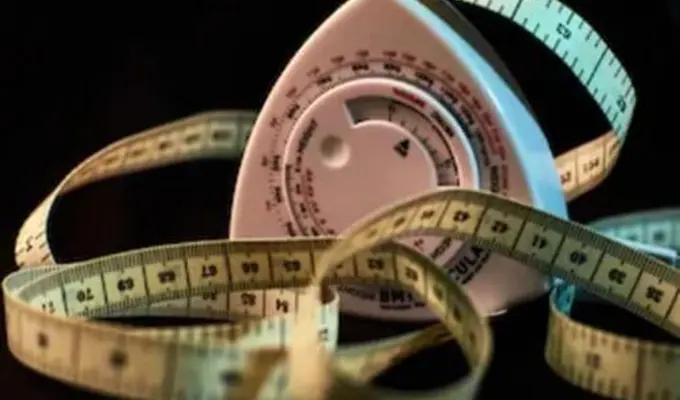BODY HEIGHT / WEIGHT CONVERTER
Weight loss is one of the most common health and fitness goals going- it’s one of the most common life goals going, with most of us having tried to achieve it at some point or another. Searching for a 'Gym Near Me' will be the first step of your weight loss journey. Though this is often down to a warped perception of weight, as we are bombarded with images of ‘ideal bodies’ on TV and social media, and although most of us have a visual representation in our minds’ eyes of what constitutes this ideal, there is actually such a thing as Ideal Body Weight (IBW).
SIGN UP FOR YOUR FREE DAY PASS TODAY!
Ideal Body Weight
IBW was originally designed with a medical outlook in mind. Applications include dosage estimates and the like. The formulas used to determine it are actually completely divorced from image and the idea of somebody’s ideal body weight.
These days, IBW most commonly used for both working out drug dosage, with metabolism of many drugs aligning more closely with IBW than with total body weight, and for weight classification in many sports.
IBW is far from a perfect measurement. In fact, the further somebody is from what might be considered a normal body shape, the less accurate it becomes- here, we’re mostly thinking of overly muscular athletes such as bodybuilders and rugby players. In the same way that other, similar bodyfat measurements do, IBW doesn’t distinguish between lean body weight and body fat: it is very possible for somebody with low body fat and high musculature, such as an athlete, to appear overweight when figuring out their IBW.
Interested in diving deeper into fitness metrics? Explore our BMI Calculator, BMR Calculator, TDEE Calculator, and Body Fat Calculator for a thorough insight into your health parameters.
You should always consider IBW in this light. The simple fact of being over or under your healthy IBW range needn’t mean that you are over- or underweight. There is no exact science to it. It is just a good yardstick, especially for those with less muscle mass, in the same way that something like BMI (Body Mass Index) can be.
There is also no measure or formula that can fully objectively, definitively, tell somebody what their perfect body weight is. Once more, we must make use of yardsticks and temper any measurements with our own good sense. Initiating a healthy, active lifestyle, with a clean diet and plenty of exercise is far more important, and will represent a far greater use of your time and energy, than obsessing over a few points either way on any body weight measurement.
IBW: the variables
This being said, there are some variables we can use to better judge our best guess at an ideal body weight. IBW calculators and formulae will take these into account, so that the number they give you will be as accurate and personalised as possible, within the above context.
Variables include:
Age
Age shouldn’t matter too much after adolescence. For men, this means post 16-17, for women more like 14-15. After this point, we tend to stop growing (in fact, we will eventually begin to shrink by a few inches). As we age, we tend also to lose lean muscle mass and put on excess body fat, though this can be halted and even reversed through healthy diet and lifestyle choices.
Gender
Broadly speaking, women will weigh less than men, and should have a few extra percentage points of body fat at every equivalent level. This is because men generally have denser bones and greater muscularity, whilst women will carry extra body fat around their reproductive organs.
Height
The taller somebody is, the more they weigh. This is where the bodyweight to height converter really kicks in, as obviously those who are taller will have greater lean mass and body fat compared with those who are shorter.
Formulas for finding your IBW
All of the formulas below can be used to find your IBW, taking your height and weight into account. Each will begin at the same format of a base weight given a height of 5 feet, with a set weight increment added per inch over the height of 5 feet.
Of all those below, the Devine formula is the most widely used formula for the measurement of IBW.
The formulas are:
- J. Devine Formula (1974)
|
Male: |
50.0 kg + 2.3 kg per inch over 5 feet |
|
Female: |
45.5 kg + 2.3 kg per inch over 5 feet |
Invented for medicinal dosage purposes.
- J. Hamwi Formula (1964)
|
Male: |
48.0 kg + 2.7 kg per inch over 5 feet |
|
Female: |
45.5 kg + 2.2 kg per inch over 5 feet |
Similar to the Devine Formula, it was originally intended as a basis for medicinal dosages based on weight and height. Over time, the formula became a universal determinant of IBW.
- D. Robinson Formula (1983)
|
Male: |
52 kg + 1.9 kg per inch over 5 feet |
|
Female: |
49 kg + 1.7 kg per inch over 5 feet |
Modification of the Devine Formula.
- R. Miller Formula (1983)
|
Male: |
56.2 kg + 1.41 kg per inch over 5 feet |
|
Female: |
53.1 kg + 1.36 kg per inch over 5 feet |
Modification of the Devine Formula.
Using these body weight to height conversion formulas will help you to see where your healthy bodyweight should be. However, note what we said earlier: it will only ever be a yardstick, and will not account for above average lean mass.



















































































